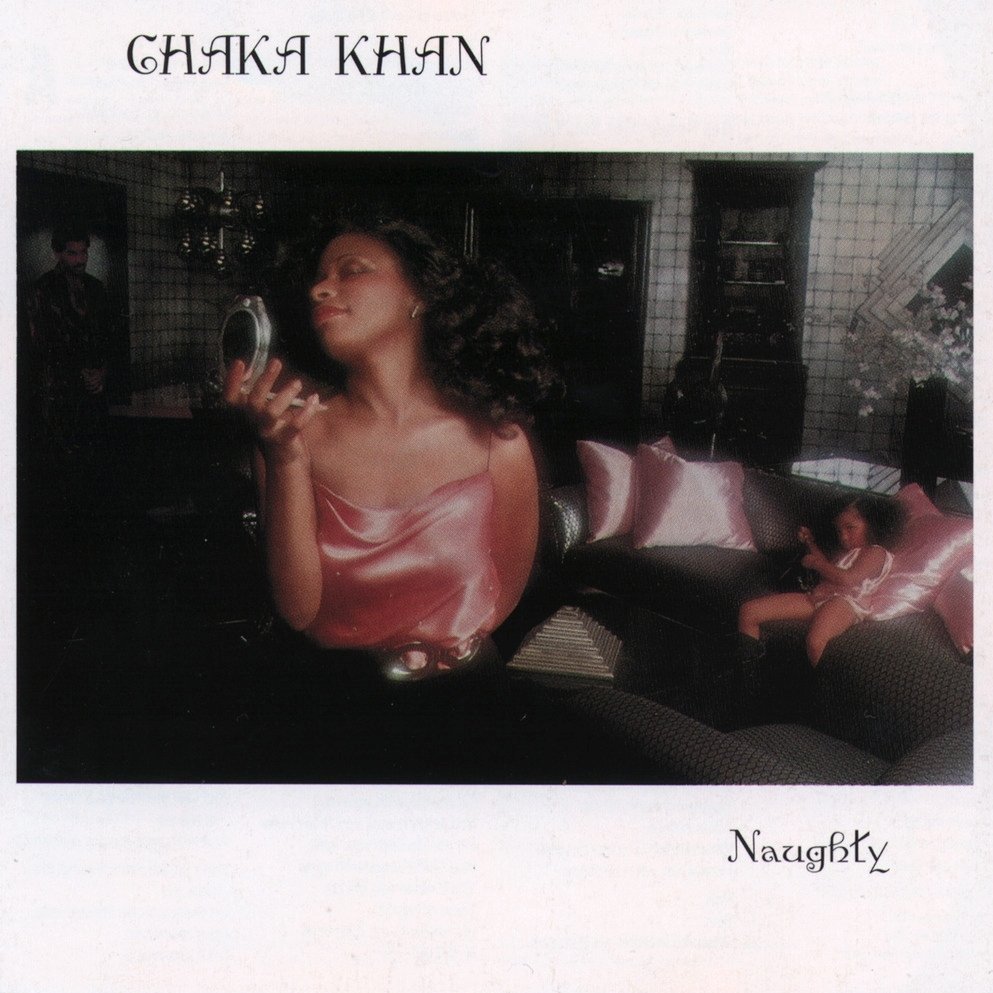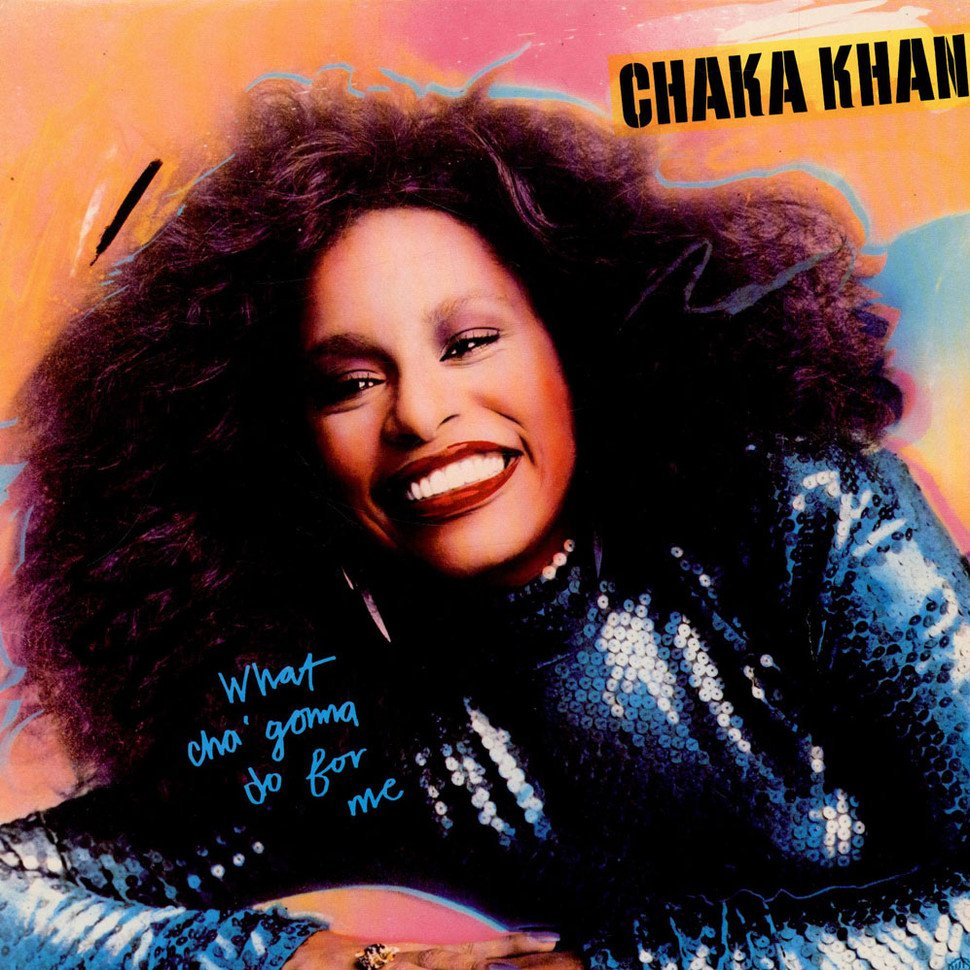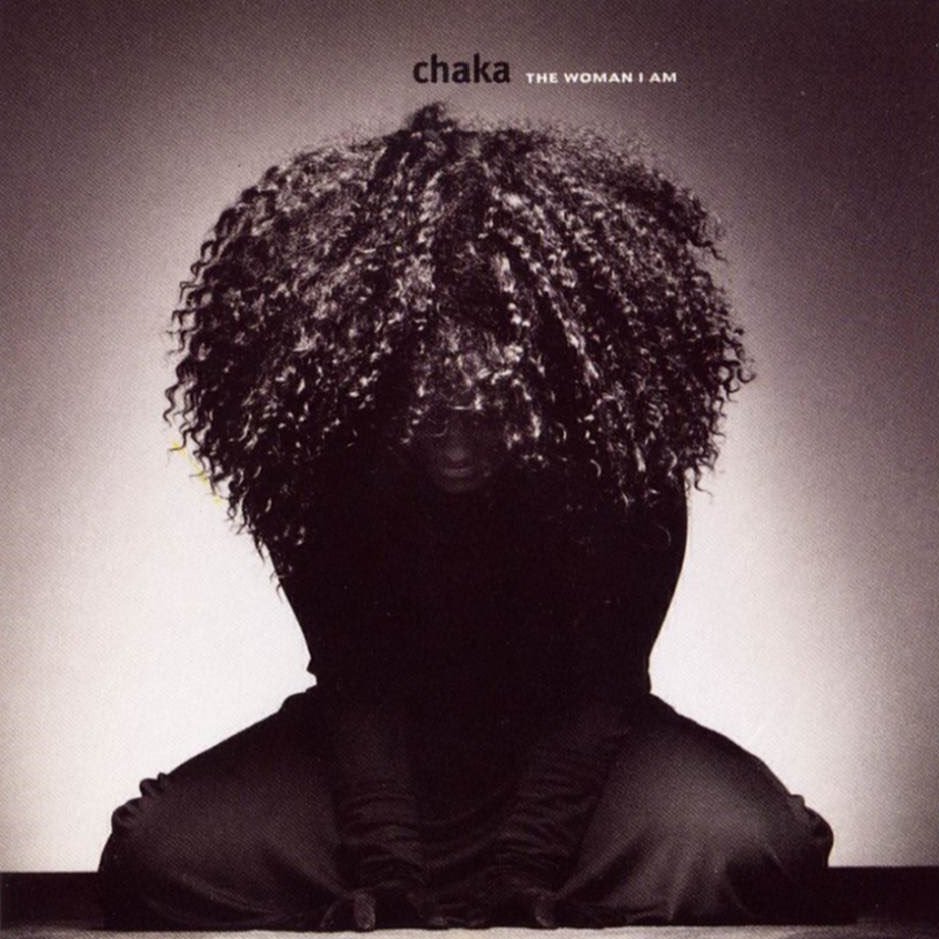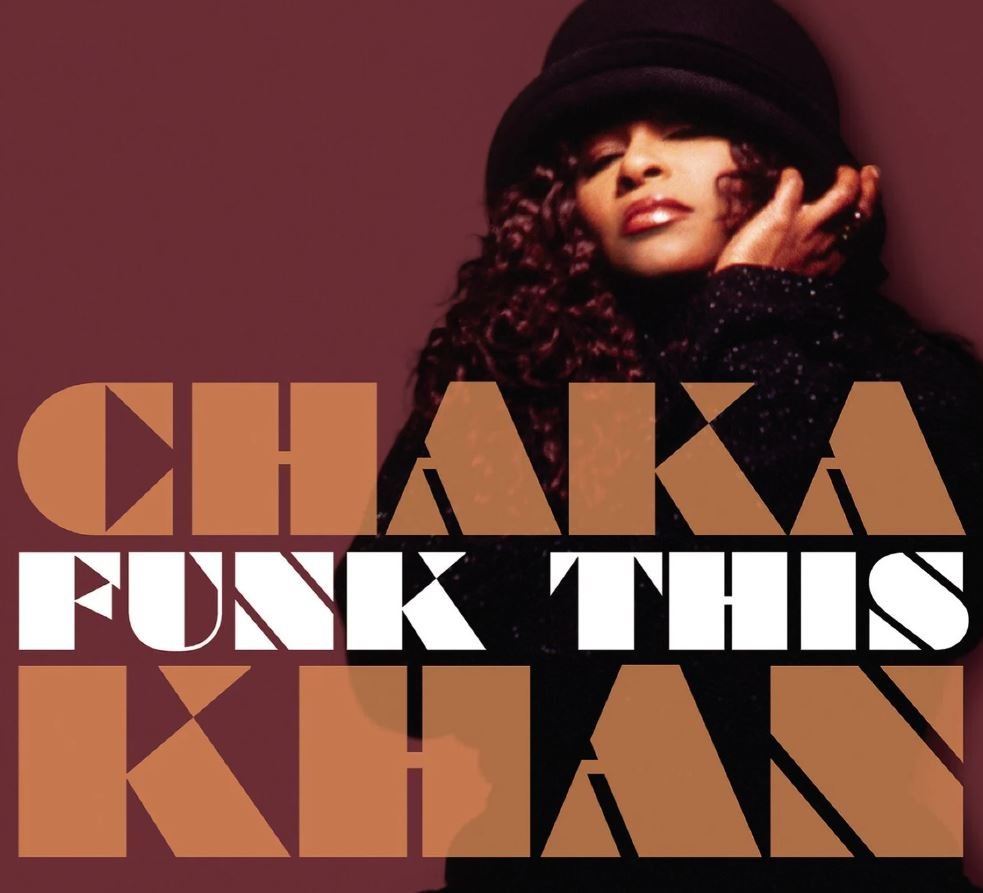Happy 45th Anniversary to Chaka Khan’s debut solo album Chaka, originally released October 12, 1978.
The writing was on the wall in 1973, when twenty-year-old Yvette Marie Stevens (known to the world as Chaka Khan) first opened her chops to rip through “Tell Me Something Good,” a sultry come-on tease Stevie Wonder penned for her as the powerhouse lead of the Chicago-hailed, multiracial outfit Rufus. The song was the band’s first hit single and their bona fide breakthrough, after their tentative eponymous debut album went nowhere. It also spawned a heap of commercial and artistic fruits for them.
As her magisterial voice was the centerpiece that held its own weight alongside Rufus’ tight funk grooves, the public singled out Khan as a rare force of nature that could stand alone. The music industry treaded on the same thought, too. Record executives at the group’s parent label, ABC Records, pointed to Khan as a top billing entity, renaming the band, much to their dismay, as “Rufus featuring Chaka Khan,” and later as “Rufus and Chaka Khan.” Amidst their fractured state, it wouldn’t be long before Khan took a hiatus from the band to pursue a solo career.
While she was still contractually bound to Rufus, who were riding high on the heels of their 1977 masterpiece, Ask Rufus, Khan signed a lucrative deal with Warner Brothers in the interim of that year and began eyeing new blood to spearhead her highly awaited solo venture. When she set her sights on the late great Arif Mardin, it was a match made in heaven.
Renowned for having “the greatest ears in town,” Mardin was a top-drawer producer, arranger, and composer, with a knack for sprinkling his distinctive touch on emergent styles that gained traction on the pop music front. But, it was his deep love for black music that won him his most enduring recognition. Similar to the seminal template he keyed for Aretha Franklin a decade before Khan’s ascendance, Mardin embraced Khan’s broad and ballsy voice as the central element that powered his buoyant musical vision. Together, they created a towering sonic signature that would reshape the R&B and dance landscape for decades to come.
Khan’s 1978 solo debut Chaka is very much an embodiment of the posh, disco-helmed R&B pulse that penetrated black pop in the late 1970s. Boasting an electrifying mix of galvanizing, thumped-to-death funk grooves and sumptuous balladry that reflected the sophistication and vulnerability of the era, the album more than solidified Khan’s staying power as a surefire singer who could hold her own, as well as command any emotional and musical setting she was placed in.
By 1978, it was well known that Khan was a gusty, stone-to-the-bone belter. If any true soul purist paid closer attention, she unfurled a range of expressive tonalities from her vocal palette. She possessed the instinctive power of a jazz singer, but could ad-lib her innate gospel embellishments in the same breath. She could also flaunt the earthier, rock-oriented nuances of her bawdy style, then flip the terrain altogether with a deep, meditative blues wail.
Listen to the Album & Watch the Official Videos:
Extraordinarily gifted and thoughtful, Mardin packed every ounce of Khan’s vocal mastery into the album’s rugged, yet richly orchestrated sound. They also found themselves in great company with an all-star cast of New York-based musicians, vocalists, and collaborators who were well-versed in pop, soul, and jazz, including Airto Moreira, the Brecker Brothers, Richard Tee, Cissy Houston, and Average White Band players, Hamish Stewart and Steve Ferrone.
Khan always had strong ties to the remarkable singer-production-songwriting duo Nick Ashford and Valerie Simpson. Earlier in 1978, the three parties lent their vocals to Quincy Jones’ slinky, four-on-the-floor ditty “Stuff Like That” for his Sounds…and Stuff Like That!! album. Before that, Khan covered two of Valerie Simpson’s songs during her early tenure with Rufus, “Keep it Coming” and “Ain’t Nothin’ but a Maybe.”
When it came time for her to work on her debut album, Ashford and Simpson wrote and supplied “I’m Every Woman.” Gorgeously supple and rock solid, “I’m Every Woman” typifies the beauty of Khan’s distinctive flair and Mardin’s splendid arranging prowess. The song’s silky orchestral washes cushion the thudding disco groove so effortlessly that it all glides and twirls elegantly around Khan’s graceful, multi-tracked wails, without overpowering them. In fact, the entire construction, from the effervescent rhythmic turns to its slamming bridge that morphs into an explosive gospel-honed climax, is drop-dead perfect.
It’s not hard to understand why many ascribe the womanhood declarations of this disco classic to its political and social significance on countless womanist liberation movements. In contrast to other female soul staples of its era whose thematic clichés either lamented a woman’s main squeeze leaving her, or antagonized “his other woman” altogether, “I’m Every Woman” assumed the self-possessed roles of a woman and her relationship with her man. Neither imperious nor showy, she praises her own strength, while shining a light on being the main vessel of her man’s needs and success.
When Khan first came across the lyrics, she felt unqualified in tackling such a song of its magnitude. “That’s one of the world’s greatest songs, but I had to grow into it,” she revealed to the St. Louis Post-Dispatch in 2014. “I felt embarrassed at the age I was singing it. It’s a song I feel comfortable singing now, but in the beginning, it felt pompous.” Released as Chaka’s lead single in September 1978, it became Khan’s first solo hit, reaching #21 on Billboard’s Hot 100, while skyrocketing to the top spot of its Black Singles chart. In 1992, Whitney Houston revisited the staple, with a post-house rendering for the mega-successful The Bodyguard soundtrack. While Houston’s update was competent in its own right, Khan’s superior original retains its untarnished quality and timeless message decades later.
Chaka wasn’t laser-beamed on that lone centerpiece, though. Tackling any evergreen from the songbook of the late great Charles Stepney is always a daunting move because matching his intricate approach to arranging is close to impossible. However, Mardin came with the goods in letting Khan take a driving, gospel-charged stab at the dramatic “Love Has Fallen on Me.” She then imbues soulful conviction into David Lasley and Lana Marrano’s spiritual love ballad “Roll Me Through the Rushes,” superseding the fluffy pop-soul sanity of The Harlettes’ version and Lasley’s own 1976 original with the blue-eyed soul group, Rosie. Right at the height of his commercial powers, jazz extraordinaire George Benson teams up with Khan to strut their smooth, yet lively vocals on his lovely composition “We Got the Love.”
Even at the core of Chaka’s classier fare, Khan never lost grip of her funk gusto. The streetwise funk jive of “Life is a Dance,” penned by the late Gavin Christopher, who also wrote several songs in Rufus’ noted repertoire, evokes celebratory vibes of summertime block parties and white-hot disco nightclubs alike. Khan co-wrote the delectably swanky “Some Love” with her brother, Mark Stevens. Anchored by Stevens’ liquid bass groove and punchy brass stabs, courtesy of the Brecker Brothers and David Sanborn, Khan’s stratospheric salvo of wails and shouts swirl endlessly with Mardin’s grandiose string arrangements. The grinding “The Message in the Middle of the Bottom” and affectionate “Sleep on It” would have been right at home on 1975’s Rufus Featuring Chaka Khan and 1978’s Street Player respectively, as both largely recall Khan’s Rufus-era dialectic so fluently.
Enjoying this article? Click/tap on the album covers to explore more about Chaka Khan:
Framing a timely gaze on patriarchal toxicity, the Andrew Kastner and Larry John McNally penned “A Woman in a Man’s World” details societal inequities that betray strong-willed women who, as its rather spirited lyrics suggest, “work twice as hard for the same reward as any man.” Khan pays homage to her fellow mentor and friend Stevie Wonder with a slightly routine, yet effective reading of his 1967 hit “I Was Made to Love Her,” which she aptly repositions as “I Was Made to Love Him.”
Thanks in part to the popularity of “I’m Every Woman,” Chaka was a rousing success for Chaka Khan. In the wake of its initial October 1978 release, the album granted her strong sales and critical acclaim, eventually receiving gold certification. It also marked the freedom of a seasoned chanteuse who had already arrived on the promise and power of her most transcendent instrument: her voice. Above all, she formed a groundbreaking alliance with one of pop music’s all-time great purveyors. Together, they reached new personal and musical plateaus.
One of the enduring features of Chaka remains its sparkling melding of spicy disco styles and sophisticated soul. In fact, it should go down in history as one of the last great albums of the disco era, underscoring the genre’s purest and most ornate nuances. Even with its professionally slick touches, the overarching gospel, funk, and soul keynotes are greatly present. Right at the zenith of disco’s sweeping takeover, Chaka Khan and Arif Mardin built a hefty foundation that would only move into bolder avenues as their collaboration soldiered on.
LISTEN:
Editor's note: this anniversary tribute was originally published in 2018 and has since been edited for accuracy and timeliness.





